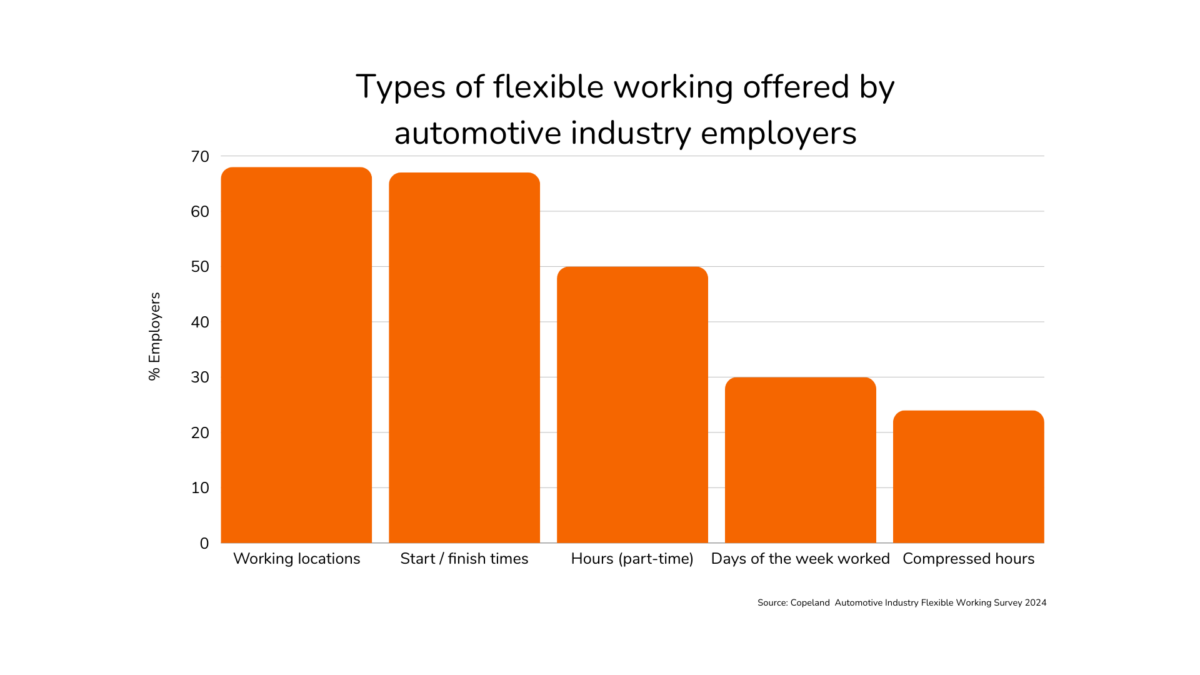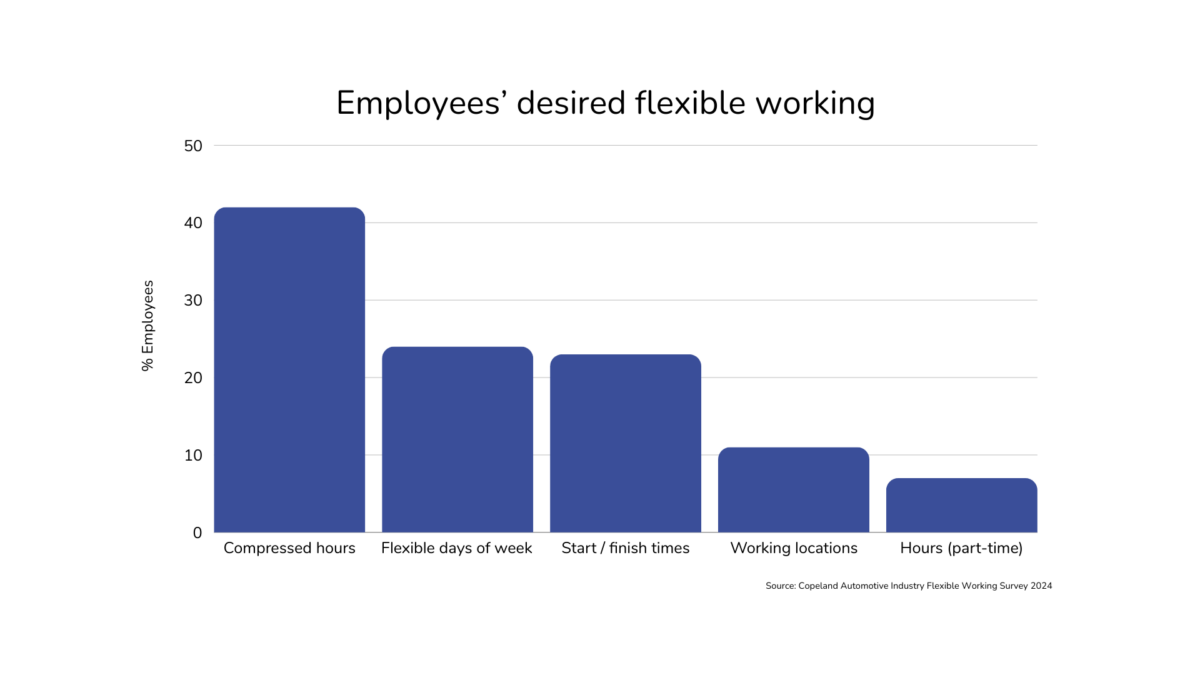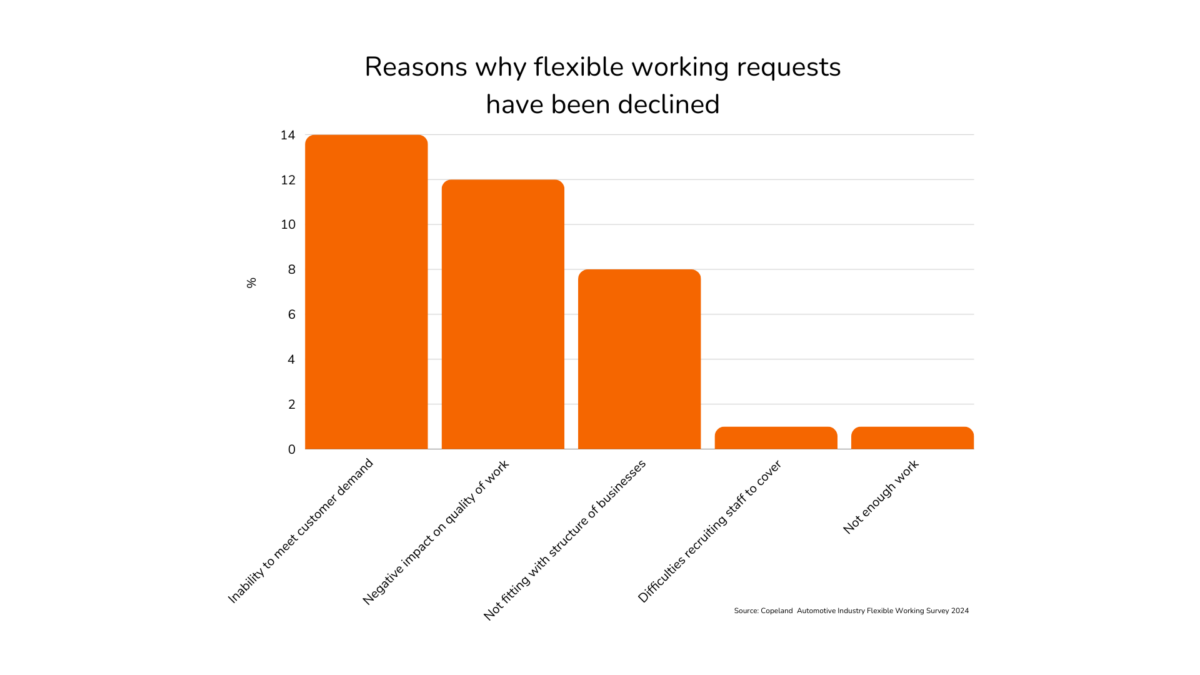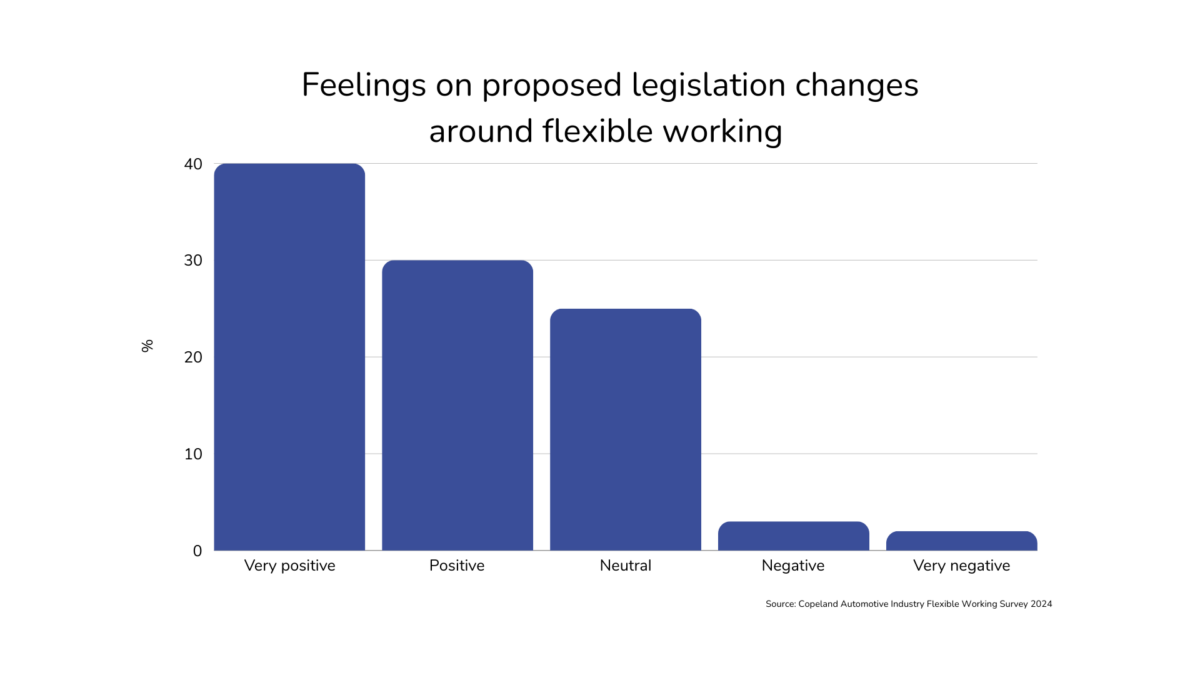Does your organisation have employees working flexibly? If so, how does it compare to other automotive industry businesses? With recent new UK legislation around flexible working and proposed further changes to make flexible working more available to employees, is your organisation embracing flexible working and all the benefits it can offer both employers and employees? Or is flexible working not viable or suitable for your organisation?
As a specialist recruiter for the automotive industry, I was keen to discover how our industry is doing when it comes to flexible working. Do employers and employees have the same views around flexible working? What are the key issues? To find answers to these questions I have recently surveyed automotive industry employers and employees. Read on to find out what I discovered…
UK legislation around flexible working
It’s useful to understand what the current and proposed new UK legislation is concerning flexible working.
Current Legislation
UK legislation around flexible working changed in April 2024. Current law says:
- All employees have the legal right to request flexible working. They can request a change to:
- The number of hours they work
- When they start or finish work
- The days they work
- Where they work
- Employees can now request flexible working on their first day of employment, instead of waiting 26 weeks
- Employees can make up to 2 (rather than 1) requests in any 12-month period
- Employers are required to make a decision (including any appeal) within two months (rather than three)
- Employees no longer need to explain how their request will impact the business or how the employer might deal with it.
- Employers must consult an employee before refusing a request
- Employers can only refuse a request for one of eight business reasons, these are:
- extra costs that will damage the business
- the work cannot be reorganised among other staff
- people cannot be recruited to do the work
- flexible working will affect quality
- flexible working will affect performance
- the business will not be able to meet customer demand
- there’s a lack of work to do during the proposed working times
- the business is planning changes to the workforce
Proposed new legislation
As you may have recently seen in the press, the new UK Labour Government plans to reform employment law in document called ‘Labour’s Plan to Make Work Pay’. This plan is proposing a host of changes, many of which will require legislation. This means it’s unlikely that any of the proposed changes will become law before 2025.
One of the planned changes is around ‘compressed hours’. They are proposing that employees can request to work their full hours but do this over 4 days rather than 5. They are also suggesting that they will make it harder for employers to refuse a request for flexible working. But quite how this will work and what would constitute an unreasonable request is yet to be detailed.
Flexible working in the automotive industry
So where is the UK automotive industry current at when it comes to flexible working? I have been recruiting for the automotive industry for over 20 years and work daily with automotive employers and employees. Flexible working is often a topic that comes up when it comes to benefits offered by employers and in negotiating job offers. For some employees flexible working options will be fundamental in whether or not they will take a new job.
To understand the current situation and views of both automotive industry employers and employees I carried out a ‘Flexible Working Survey’ in September 2024. So here’s what I discovered:
Headlines
- 87% of employers currently offer flexible working of some sort
- The most common type of flexible working is flexible working locations with 68% offering this
- Compressed hours are the most desired additional flexibility by employees
Types of flexible working offered
Our survey revealed that the most common type of flexible working currently offered by automotive industry employers is flexible work locations. Here are the details:

Most desired additional flexibility
We asked employees what type of additional flexibility they most desired. Compressed hours was the most wanted additional benefit. It would therefore appear that the proposed changes that the government is suggesting would be well received by automotive industry employees.

Why flexible working has been declined
We asked employees for reasons why employees in their organisation had been declined flexible working requests by their employer. The most common reasons given were either ‘detrimental effect on ability to meet customer demand’ (14%) and ‘negative impact on quality of work’ (12%). From the responses we received it was evident that this was a fairly emotive topic with some employees.


Proposed changes to flexible working legislation
We wanted to know what the automotive industry thought about the proposed changes to flexible working legislation. This legislation plans to boost the ability of UK employees to compress a five day week into four days. The response was overwhelming in favour of these changes with 40% of respondents feeling ‘very positive’ about the proposed changes.

Benefits of flexible working
Whilst not everybody likes the idea of flexible working, there is no doubt that it can offer benefits to both employers and employees. Many automotive industry employers and employees I work with are already reaping the benefits. Here are some of the benefits our survey respondents gave us:
Benefits to employers
- Increased employee retention
- Cost savings – reduced employee overheads / office space requirement
- Easier to recruit employees
- Happier employees
- Increased employee engagement
- Better productivity
Benefits to employees
- Better work-life balance / happier
- Ability to take an job they otherwise wouldn’t have been able to
- Increased productivity
- More engaged in work
- Less likely to fee the need to seek a new job

Negatives of flexible working
Flexible working is not for everyone and not suitable for some organisations. Whilst it can undoubtedly bring many benefits, there are also some downsides to flexible working. Here’s what automotive industry employers and employees have told us:
Comments from employers
‘Decision making can take longer’
‘Staff working remotely can become overwhelmed with email and not respond within a reasonable timescale’
‘Managing the office space – very quiet on Monday/Friday and very busy on Tues/Wed/Thurs’
‘Having to pay rent for a larger office than necessary for those occasions when more staff want to come in’
‘A greater presence “in the office” has been used as a rationale for career progression, so not truly flexible in senior positions’
Comments from employees
‘There is a perception that working from home means slacking off’
‘The temptation to work past my hours to complete tasks.’
‘I felt very isolated, as my team mates worked onsite at a different location 2 hours away.’
‘I can occasionally feel left out of conversations. This is normally due to people within the organisation not being used to remote working and the challenges it can bring.’
“Some senior managers don’t understand the benefits and perceive you wrongly”
Final thoughts
In conclusion, our survey has revealed that the majority of automotive industry businesses are embracing flexible working and the majority of employees are happy with this. In some instances there would seem to be more that could be done to harness the benefits of flexible working in a way that works for both the employee and the business. Here are a few comment we received from our survey respondents:

This article about flexible working in the automotive industry – was written by Julia Pennington, Managing Director of Copeland Automotive Recruitment. I have over 20 years’ experience working finding great people for automotive industry businesses and great career moves for automotive industry people. Learn more about how I help businesses build great teams and how I help employees progress their careers.
To discuss any of the issues raised in this article or for help with recruitment please get in touch.
…
Further Reading:
…

